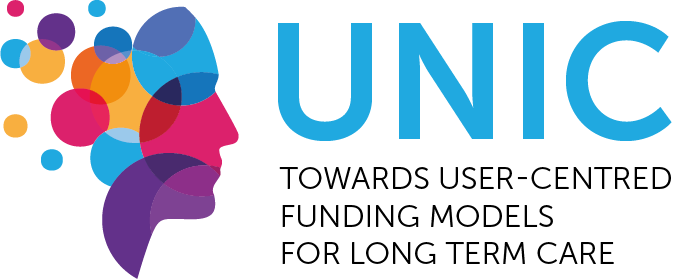The UN CRPD (United Nations Convention on the Rights of Persons with Disabilities) and the new European Strategy for the Rights of Persons with Disabilities (2021-2030) aim to ensure that persons with disabilities enjoy their human rights and have equal opportunities. For many people with disabilities, social services are enabling them to enjoy those rights – or making it more difficult. Service systems can be perceived as obscure or bureaucratic, but there are many good and promising practises across Europe on how to develop systems differently. The goal of the UNIC-project is to help public authorities to implement user-centred funding models for long term care and support that are based on human rights.
In many countries, social care systems are under pressure due to the Covid-19 pandemic, austerity measures and demographic changes. At national level, the systems face the need to do more with less money. Other challenges, such as public procurement, also make it more difficult for people with disabilities to enjoy their rights. A strong focus on human rights, citizenship, participation, involvement of people with disabilities and their families, individualised services and person-centered approaches to organize services, such as personal budgets,– these are the fundamental elements when developing social services. It is crucial to think about what kind of social services and support we are developing in Europe. The Covid-19 pandemic has made this question even more pertinent. People more susceptible to social exclusion, such as older persons and persons with disabilities, especially those living in large residential facilities have been hit the hardest by the pandemic. And, services faced significant challenges, further exacerbated. For people with disabilities, the history of inclusion is short. Now we must ask, how can persons who receive long term care and support be actively participating in organizing their own support, based on their individual needs and preferences.
Services should help people to find their own voice. When this is found we know what kind of life people want to live and what kind of support they need to make it real. Services must be flexible and meet the needs and wishes of individuals. Services should support full citizenship, all the aspects of it. This should be the case also for people with high support needs. We must be able to support the social relationships of people and support them to find their community and meaningful ways to contribute. We need to scale-up innovations to be able to achieve sustainable services across Europe. By scaling-up social innovations we can achieve more impact and positive outcomes.
To make this a reality, we have to work together: we must learn from each other, we must co-create support services to build stronger communities. The pandemic has accelerated the creation of different types of digital communities. That gives us a whole new perspective on how to create and support social innovation, such as self-directed support, across Europe, now and in the future.
The purpose and core of social services is changing. They are increasingly being provided in collaboration with users and those close to them. They are also more and more linked to the society as a whole. This is a great opportunity to provide social services in a way that meets the needs of the users and enables them to fulfil their potential. We must see this transitional period as an opportunity for our sector.
Kirsi Konola, CEO, Service Foundation for People with an Intellectual Disability (KVPS)
Petra Rantamäki, Director of Development Activities, Service Foundation for People with an Intellectual Disability (KVPS)
